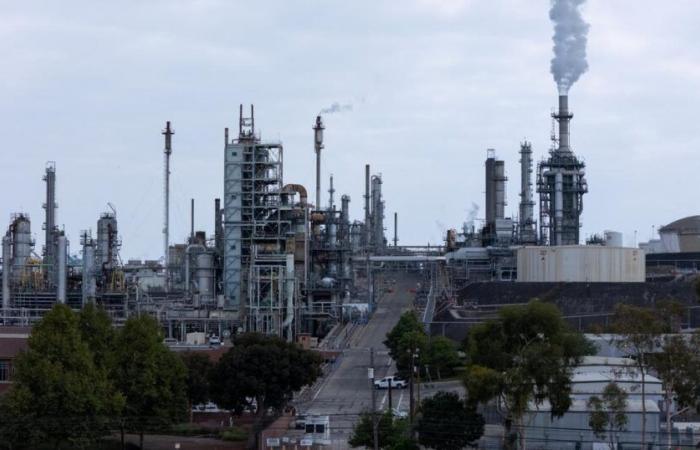Oil prices ended up on Thursday thanks to a technical rebound following the drop the day before, with operators still wondering about the consequences of a new Trump presidency. The price of a barrel of Brent from the North Sea for delivery in January gained 0.95%, to close at $75.63. A barrel of American West Texas Intermediate (WTI) due in December gained 0.93%, to $72.36. “The market is coming to its senses” after a stall on Wednesday, explained Stephen Schork of Schork Group. “The dollar was so strong (Wednesday) that it weighed on prices.”
On Wednesday, operators reacted to Donald Trump's victory in the American presidential election, considered positive for the greenback. Expected increase in deficit and debt, renewed inflation, acceleration of growth, investors associated all these developments favorable to the dollar with a new mandate from the real estate developer. As the vast majority of black gold contracts are denominated in this currency, its appreciation tends to put prices under pressure. For Stephen Schork, the technical characteristics of the market argue for a rise in prices, “but a technical rebound cannot turn into fundamental dynamics”. Or, “the fundamentals are very bad” for prices currently, with abundant supply and Chinese demand lacking strength, recalls the analyst.
Embargo on Iranian deliveries
If the speakers saw the return of Donald Trump to the White House as positive for the oil and gas industry, they struggled to imagine a short-term impact on crude prices. Self-proclaimed ally of the oil industry, Donald Trump promised to create the conditions for its growth in the United States, mainly by reducing regulation. “But the companies are private and their loyalty is to the shareholders, to whom they want to ensure the best return on investment”warns Stephen Schork, which led them to voluntarily limit their production to avoid a drop in prices.
At the same time, with the return of Donald Trump, “the embargo on oil deliveries” Iranian “will be applied more firmly”also considers the analyst, which could deprive the market of part of the barrels of the Islamic Republic and support prices. “It’s still a little early to say how prices will evolve” under the possible influence of the Republican, warns Daniel Zachary, professor of energy policy at Johns Hopkins University.






